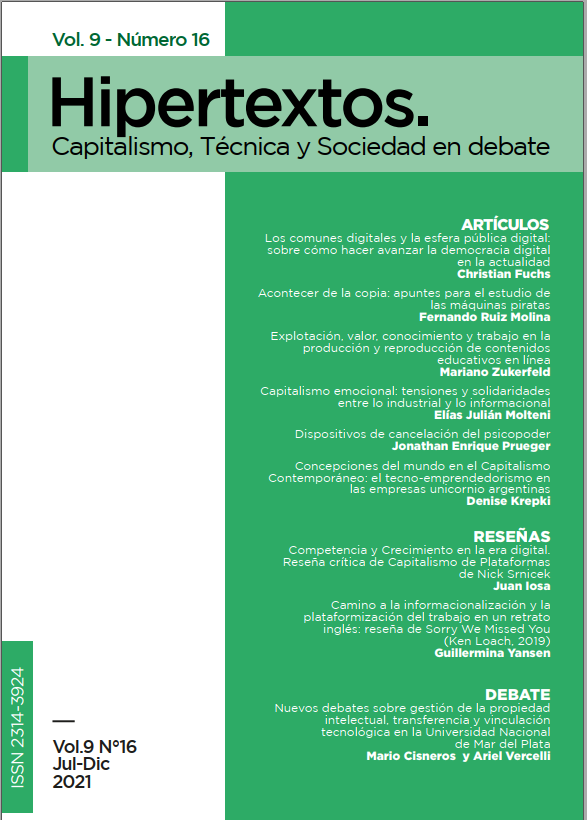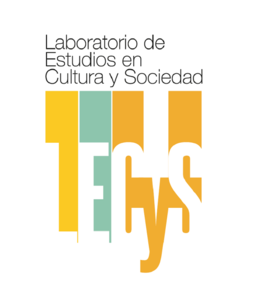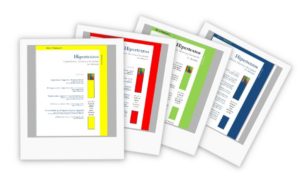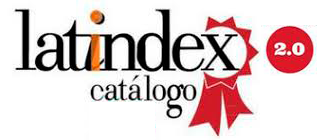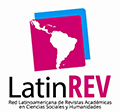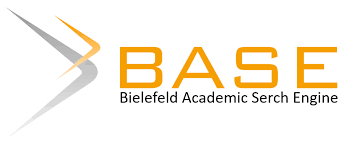Explotación, valor, conocimiento y trabajo en la producción y reproducción de contenidos educativos en línea
DOI:
https://doi.org/10.24215/23143924e040Palabras clave:
explotación, conocimiento, valor, trabajo, educaciónResumen
Este artículo intenta abordar la explotación por reproducción de trabajadores docentes que preparan contenidos para educación en línea en procesos productivos con fines de lucro. El enfoque teórico se basa en una definición y una tipología de diferentes tipos de explotación. La evidencia empírica proviene de dos encuestas cortas gemelas respondidas por 129 académicos con sede en el Reino Unido y Argentina. Concluimos que los docentes tienden a asociar la remuneración esperada con el tiempo dedicado a preparar las clases –más que con sus conocimientos-, lo que ofrece una base favorable al florecimiento de la explotación por reproducción.
Referencias
Aaron, Lynn S., & Roche, Catherine M (2015) Intellectual Property Rights of Faculty in the Digital Age-Evolution or Dissolution in 21st Century Academia? Journal Of Educational Technology Systems, 43(3), 320-341. https://doi.org/10.1177/0047239515570582
Anderson, T. (2008) The theory and practice of online learning. Athabasca University Press.
Borrego, Nali; Rodríguez, Humberto; Walle, Rogelio and Ponce, Jesus. 2008. Educación Superior Virtual en América Latina: Perspectiva Tecnológica-Empresarial. Formación universitaria, 1(5), 3-14. https://dx.doi.org/10.4067/S0718-50062008000500002
Browne, T., Jenkins, M., and Walker, R. (2006). A longitudinal perspective regarding the use of VLEs by higher education institutions in the United Kingdom. Interactive Learning Environments, 14(2), 177-192.
Castillo, L. M. (2020). Lo que la pandemia nos enseñó sobre la educación a distancia. Revista Latinoamericana de Estudios Educativos (México), 50, 343-352.
Chang, H.J. (2001) Intellectual property rights and economic development: Historical Lessons and Emerging Issues, Journal of human development, 2(2), 287-309.
Cooper, S. y Sahami, M. (2013) Reflections on Stanford's MOOCs. Communications of the ACM, 56(2), 28-30.
Coriat, B. (1985). El taller y el cronómetro. Ensayo sobre el taylorismo, el fordismo y la producción en masa. Siglo XXI.
Dolcemáscolo, A. (2014). Explotación Cognitiva en plataformas de video: El caso de YouTube. Hipertextos, 3(2), pp. 43-67.
Dolcemáscolo, A. y Yansen, G. (2017) Informational cognitive exploitation: concealed relationships behind prosumers’ activity on the World Wide Web, Sociologia del lavoro, n. 145/2017. pp. 61-77. DOI: 10.3280/SL2017-145004. Recuperado de https://www.francoangeli.it/riviste/Scheda_Rivista.aspx?IDArticolo=58742&Tipo=Articolo%20PDF&idRivista=83
Drahos, P. y Braithwaite, J. (2002) Information Feudalism: Who owns the knowledge economy? The New Press.
Elster, J. (1981) “Roemer vs. Roemer”, Politics & Society, 11:3.
Fisher, E. (2012) How Less Alienation Creates More Exploitation? Audience Labour on Social Network Sites, tripleC - Open Access Journal for a Global Sustainable Information Society ,10 (2), 171-183. https://doi.org/10.31269/triplec.v10i2.392
Fuchs, Ch. (2012) With or without Marx? With or without capitalism? A rejoinder to Adam Arvidsson and Eleanor Colleoni, tripleC – Open Access Journal for a Global Sustainable Information Society 10 (2), 633-645
Fuchs, Ch. (2015) Against Divisiveness: Digital Workers of the World Unite! A Rejoinder to César Bolaño and Eloy Vieira, Television & New Media 16 (1), 62–71.
Fuchs, Ch. (2010). Labor in informational capitalism and on the Internet. The Information Society 26 (3), 179–196.
Fumagalli, A (2015) The concept of life subsumption of labour to capital: towards the life subsumption in bio-cognitive capitalism, forthcoming. En E. Fisher, C. Fuchs (eds.), Reconsidering value and labour in the digital age. Palgrave-McMillan.
Gagliardi, V. (2020). Desafíos educativos en tiempos de pandemia. Questión.
Garegnani, P.A. (1979) La realidad de la explotación, Debate sobre la teoría marxista del valor. Cuadernos de Pasado y Presente, 82.
Geteducated.com. (2016) Teaching online courses. Get.educated.com. https://www.geteducated.com/teaching-online-courses/253-online-teaching-opportunities
Harasim, L. (1996). Online education. Computer networking and scholarly communication in the twenty-first-century university, 203-214.
Hilferding, R. ([1910] 1981). Finance Capital. Routledge & Kegan Paul.
Hodgson, G. (1988) Una teoría de la explotación sin la teoría del valor trabajo. Revista Economía Teoría y Política. N° 12, 141-153.
Hoxby, C. (2014) The Economics of Online Postsecondary Education: MOOCs, Nonselective Education, and Highly Selective Education, American Economic Review, 104(5), 528-33.
Izumi, T., Sukhwani, V., Surjan, A., & Shaw, R. (2020). Managing and responding to pandemics in higher educational institutions: initial learning from COVID-19. International Journal of Disaster Resilience in the Built Environment.
Johns, A. (2010). Piracy. The Intellectual Property Wars from Gutenberg to Gates. University of Chicago Press.
Kolowich, S. (2013) "The Professors Who Make the MOOCs". Chronicle of Higher Education. Retrieved 26 March 2013.
Kreimer, P. y Zukerfeld, M. (2014) La explotación cognitiva: Tensiones emergentes en la producción y uso social de conocimientos científicos tradicionales, informacionales y laborales. En Kreimer, Vessuri, Velho y Arellano Perspectivas latinoamericanas en el estudio social de la ciencia, la tecnología y el conocimiento. Siglo XXI.
Lazzarato, M. y Negri. A. (2001) Trabajo inmaterial. Formas de vida y producción de subjetividad. DP&A Editora.
Lee, Doo Yung, y Lehto, Mark. R. (2013) User acceptance of YouTube for procedural learning: An extension of the Technology Acceptance Model. Computers & Education, 61, 193-208.
Liaudat, S. (2021) Stevia. Conocimiento, propiedad intelectual y acumulación de capital. Prometeo.
Marotias, A. (2020). La educación remota de emergencia y los peligros de imitar lo presencial. Hipertextos, 8.
Marx, K. ([1867] 1990) Capital: A Critique of Political Economy, vol. 1. Penguin.
May, Ch. y Sell, S. K. (2006) Intellectual property rights: a critical history. Boulder, Colorado: Lynne Riener Publishers.
Mishra, L., Gupta, T., & Shree, A. (2020). Online teaching-learning in higher education during lockdown period of COVID-19 pandemic. International Journal of Educational Research Open, 1, 100012.
Moulier-Boutang, Y. (2011) Cognitive Capitalism. Polity Press.
Rabosto, A. (2014). Apuntes para una crítica de los estudios de la web. Hipertextos, 2(1), 30-63.
Roemer, J. E. (1985) Should Marxists be Interested in Exploitation? Philosophy and Public Affairs, 14 (1), 30-65.
Salmon, G. 2013. E-tivities: The key to active online learning. Routledge.
Santamans, J.M. 2014. El mercado Global de e-learning, Online Business School. Available at: https://gcu.universia.net/net/files/2014/6/21/investigacion-obs-el-mercado-global-del-e-learning-2014.pdf
Selwyn, N. (2007) Web 2.0 applications as alternative environments for informal learning-a critical review. En Paper for CERI-KERIS International Expert Meeting on ICT and Educational Performance (pp. 16-17).
Simon, H. A. (1996) The Sciences of the Artificial. The MIT Press.
Smythe, D.W. (1977) Communications: blindspot of western Marxism, Canadian Journal of Political and Social Theory, 1(3), 1-27
Sweezy, P.M. (1942) The Theory of Capitalist Development. Monthly Review Press.
Torres, Patricia L. Y Rama, Claudio (eds) (2010). La educación superior a distancia en América Latina y el Caribe. Editora Unlsul.
U.S. Department of Education, National Center for Education Statistics. (2016) Digest of Education Statistics, 2014 (NCES 2016-006), Table 311.15. Available at: https://nces.ed.gov/fastfacts/display.asp?id=80
Vercellone, C. (2011). Capitalismo cognitivo: renta, saber y valor en la época posfordista. Prometeo.
Weller, M.(2002) Delivering learning on the Net: The why, what & how of online education. Psychology Press.
Wright, E.O. ([1985] 1997) Classes. Verso.
Yansen, G. (2015) Explotación cognitiva informacional: un analisis de una plataforma web de contenido audiovisual. Tesis de Maestría. FLACSO. Sede Académica Argentina, Buenos Aires. http://hdl.handle.net/10469/7864
Zhou, L., Wu, S., Zhou, M., & Li, F. (2020). 'School’s Out, But Class’ On', The Largest Online Education in the World Today: Taking China’s Practical Exploration During The COVID-19 Epidemic Prevention and Control As an Example. Best Evid Chin Edu, 4(2), 501-519.
Zukerfeld, M. (2017a) Exploitation, Regulation and Ideology in Online Education: Towards a Theory of Exploitation through Reproduction in Informational Capitalism. Westminster Advanced Studies, 9. London: Westminster Institute for Advanced Studies
Zukerfeld, M. (2017b). Knowledge in the Age of Digital Capitalism: An Introduction to Cognitive Materialism. University of Westminster Press.
Zukerfeld, M. (2017c). The tale of the snake and the elephant: Intellectual property expansion under informational capitalism. The Information Society, 33 (5), 243-260.
Zukerfeld, Mariano (2014) Inclusive Appropriation and the Double Freedom of Knowledge: On the Capitalist exploitation of non-for profit software, contents and data producers. En Special Issue Free and Unpaid Work: Gratuity, Collaborative Activity And Precariousness, Sociología del Lavoro, (133), 144-158
Zukerfeld, M. (2010) Capitalismo y Conocimiento. Materialismo Cognitivo, Propiedad Intelectual y Capitalismo Informacional. Tesis de doctorado en Flacso Argentina. Disponible en capitalismoyconocimiento.wordpress.com.

